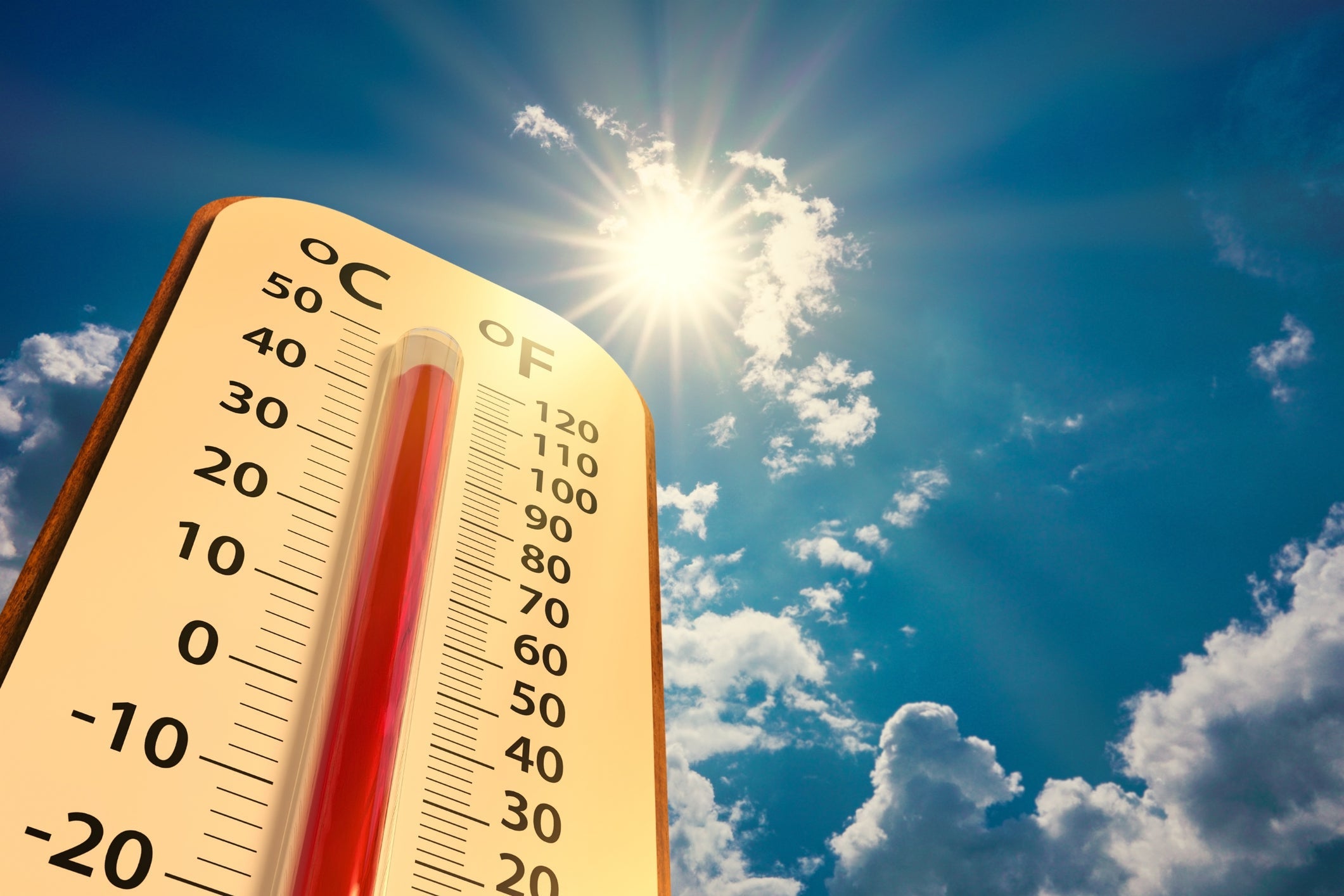Date: July 1, 2023
In a concerning weather forecast, meteorologists are predicting hotter-than-average conditions in regions spanning from the Gulf Coast to the Southwest, as well as in the far northern tier. These elevated temperatures are anticipated to have significant impacts on local communities and ecosystems.
According to experts, this heatwave can be attributed to various factors, including climate change and natural weather patterns. The Gulf Coast and Southwest regions, already known for their warm climates, are expected to experience intensified heat during this period. Additionally, the far northern tier, typically known for milder temperatures, is likely to face unusually high temperatures, which could disrupt the local environment and pose risks to human health.
This forecast comes amidst growing concerns about global warming and its effects on weather patterns around the world. It serves as a stark reminder of the urgent need for action to address climate change and its far-reaching consequences.
As temperatures rise, the risks associated with extreme heat become more pronounced. Heat-related illnesses, such as heatstroke and dehydration, can pose a threat to vulnerable populations, including the elderly, children, and those with pre-existing health conditions. Authorities are urging residents in the affected areas to take necessary precautions, including staying hydrated, seeking shade or air-conditioned environments, and avoiding strenuous outdoor activities during the hottest parts of the day.
The potential impact of this heatwave extends beyond human health. Ecosystems, including wildlife and vegetation, may face significant challenges as they adapt to these extreme conditions. Heat stress on crops, increased evaporation rates, and water scarcity could affect agricultural productivity and exacerbate existing challenges in the region.
Efforts to mitigate the impacts of rising temperatures are ongoing. Local governments, environmental organizations, and communities are exploring various strategies to combat heatwaves, such as implementing heat-resilient infrastructure, promoting green spaces, and raising awareness about the importance of energy conservation and sustainable practices.
As we navigate these hotter-than-average conditions, it is crucial for individuals and communities to prioritize their well-being and adapt to changing climates. Staying informed about weather updates, following official guidelines, and supporting initiatives aimed at addressing climate change are essential steps in building resilience and protecting ourselves and our environment.
The situation will continue to be monitored closely, and updates will be provided as new information becomes available.
As a scorching heat wave sweeps across various regions, it's crucial to prioritize your safety and well-being. Heat waves can pose serious health risks, especially for vulnerable individuals and those without access to air conditioning. To help you stay safe and cool during this challenging time, we have compiled a comprehensive guide with essential tips and precautions.
-
Avoid Strenuous Activities and Opt for Cooler Hours: Minimize outdoor activities, especially during the hottest parts of the day. If possible, schedule tasks and exercise sessions for early morning or late evening when temperatures are relatively lower and the sun is less intense [1].
-
Seek Shade and Take Breaks: When spending time outdoors, seek shaded areas to shield yourself from direct sunlight. Take frequent breaks in cool or air-conditioned spaces to give your body a chance to recover from the heat [1].
-
Stay Hydrated: Drink plenty of fluids throughout the day, even if you don't feel thirsty. Water is the best option, but you can also include electrolyte-rich drinks to replenish essential minerals lost through sweating. Avoid sugary or alcoholic beverages as they can contribute to dehydration [1].
-
Keep Cool: If possible, stay indoors in air-conditioned environments. If you don't have air conditioning at home, consider visiting public places with air conditioning, such as libraries, malls, or community centers. Utilize cooling centers established by local authorities during heat waves. Fans, cool showers, and lightweight, loose-fitting clothing can also help you stay cool [1].
-
Take Extra Care for Vulnerable Individuals: Infants, the elderly, and individuals with chronic illnesses are more susceptible to heat-related illnesses. Check on them regularly and ensure they have access to a cool environment. Never leave children, older adults, or pets in hot vehicles, as temperatures can quickly become life-threatening [1][2].
-
Recognize Heat-Related Illnesses: Be aware of the symptoms of heat stroke and heat exhaustion. Heat stroke symptoms include high body temperature, confusion, headache, and rapid heartbeat. Heat exhaustion symptoms may include heavy sweating, muscle cramps, dizziness, and cold or clammy skin. If you or someone around you experiences these symptoms, seek immediate medical attention [2].
-
Pay Attention to Your Sleeping Environment: Create a cool and comfortable sleeping environment by using lightweight bedding and cooling the room before bedtime. Consider using fans or air conditioning to help regulate the temperature [2].
-
Protect Your Pets: Keep your pets indoors and provide them with access to shade and fresh water. Avoid walking them on hot pavement, as it can burn their paws. If you notice signs of overheating in your pets, such as excessive panting or difficulty breathing, seek veterinary care promptly [2].
-
Be Mindful of Hot Surfaces: During a heat wave, surfaces like pavement, sand, or metal can become extremely hot and cause burns. Wear appropriate footwear and be cautious when touching or walking on hot surfaces [3].
-
Plan Outdoor Activities Wisely: If you must engage in outdoor activities, plan them during cooler times of the day and take frequent breaks in shaded areas. Protect yourself by wearing lightweight, light-colored clothing, sunglasses, and a wide-brimmed hat. Don't forget to apply sunscreen with a high SPF [3].
Remember, heat-related illnesses are preventable by taking necessary precautions and staying vigilant. By following these tips and prioritizing your safety, you can navigate the heat wave with resilience and ensure the well-being of yourself and those around you.
Stay cool and stay safe!
Citations:
[1] HowStuffWorks. "5 Tips to Stay Safe During a Heat Wave." Retrieved from [URL]
[2] The New York Times. "Heat Wave Safety: What You Need to Know." Retrieved from [URL]
[3] Boston Herald. "Here’s how to keep cool and stay safe during a heat wave." Retrieved from [URL]

